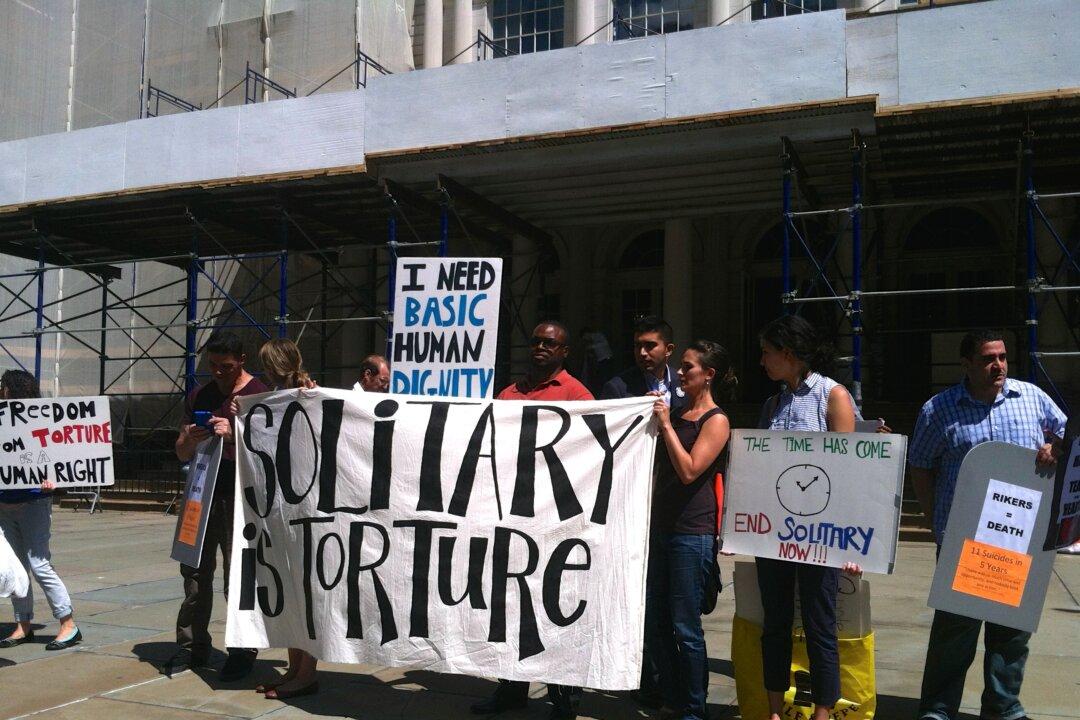Abuses at Rikers Island: Officials and Advocates Call for End to Solitary Confinement and Officer Violence - Updated
For Johnny Perez, the horrors of being placed in solitary confinement still remain fresh in his memory. More than 15 years ago, when Perez was a young teen, he was placed in solitary confinement for 60 days at the Otis Bantum Correctional Center on Rikers Island.

Advocates for better treatment of the incarcerated gather at City Hall in New York, on Monday, Aug. 18, 2014. The city council is expected to pass a bill this Thursday that will require city jails to submit regular reports on who they place in solitary confinement and whether they have a mental disability. Annie Wu/Epoch Times
|Updated:




